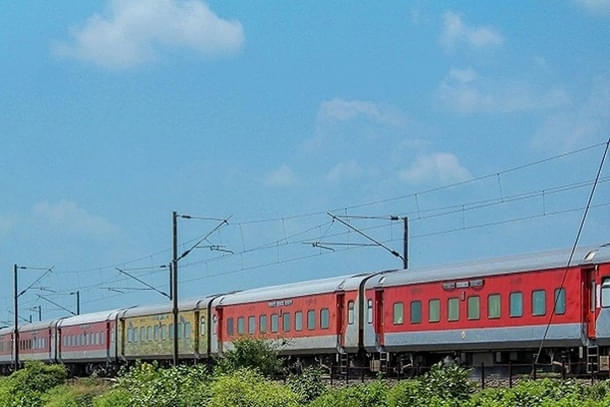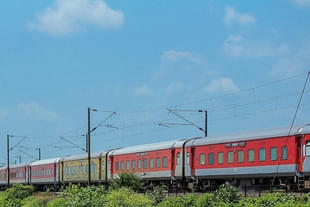Economy
Colonial-Era Law Scrapped: What The 2024 Bill Means For Indian Railways
Swarajya Staff
Dec 17, 2024, 08:46 PM | Updated Dec 20, 2024, 05:51 PM IST
Save & read from anywhere!
Bookmark stories for easy access on any device or the Swarajya app.


The passage of the Railways (Amendment) Bill, 2024, by the Lok Sabha on 13 December has sparked both optimism and concern.
The bill seeks to repeal the colonial-era Indian Railway Board Act of 1905 and incorporate its provisions into the Railways Act, 1989.
Union Railway Minister Ashwini Vaishnaw, while introducing the bill in August 2024, stated that it aims to simplify the legal framework and reduce the need to refer to two laws.
The government hails it as a transformative milestone, promising modernisation, increased efficiency, and investments in the railway sector. Yet, critics argue the bill sidesteps critical challenges such as safety and staffing shortages.
Statutory Backing
At its core, the bill aims to revamp the governance and operational framework of Indian Railways. A standout proposal is the long-awaited statutory backing for the Railway Board, which, despite being the chief administrative and executive body assisting the railway minister, has operated without formal legal authority since its inception.
By granting statutory powers to the Railway Board, the bill aims to bolster its independence and efficiency. It also empowers the central government to determine the composition of the Railway Board, including the number of members, their qualifications, experience, and terms of service.
Autonomy for Railway Zones
A key feature of the bill is decentralising decision-making by granting greater operational autonomy to railway zones. This approach aligns with recommendations from past committees, such as the Sreedharan Committee, which argued that empowering zones would enhance accountability and foster competition.
Currently, under the Railways Act, railway zones manage operations, scheduling, and maintenance within their jurisdictions but lack autonomy over budgeting, sanctioning infrastructure funds, and recruiting personnel.
The 2015 Committee on Restructuring Railways suggested that granting zones more independence would encourage competition, ensure accountability for transport output, and improve profitability. With autonomy, the Railway Board could function like a corporate board focused on policy.
Decentralisation could enable quicker project approvals and localised solutions. However, critics are wary of its implementation, fearing bureaucratic resistance or uneven development across zones.
Independent Regulator
The bill proposes establishing an independent regulator to oversee tariffs, safety, and private sector participation in the Railways. Recommendations for such a regulator were first made in 2015 by the Committee on Restructuring Railways.
With India aiming for high-speed rail, dedicated freight corridors, and better connectivity, the financial burden cannot fall solely on the government.
The bill aligns with the broader trend of leveraging public-private partnerships (PPPs) to address infrastructure deficits. This approach has shown success in sectors like telecom and energy. However, the railways are unique, requiring a balance between public service and profit-making.
One contentious issue is the potential impact on fares. Passenger services currently operate at a loss, cross-subsidized by freight revenues.
Responding to calls for reinstating discounts, Railway Minister Vaishnaw stated on 4 December that while the actual cost of a ticket is Rs 100, passengers pay just Rs 54—a discount of 46 per cent.
Rationalising fares to market rates could improve financial sustainability but risks making rail travel unaffordable for millions of low-income passengers. The opposition has already demanded the restoration of senior citizen concessions suspended during the pandemic. Critics argue reforms must ensure equitable access to affordable travel alongside structural changes.
Addressing Monopolies and Equity
Private sector participation also raises concerns about monopolistic practices. While the independent regulator is designed to ensure fair competition, its success will depend on its robustness and freedom from political influence. Lessons from other privatised sectors highlight the risks of unchecked private control, which could lead to service disparities and consumer exploitation.
The biggest challenge lies in balancing efficiency with equity. Indian Railways has long been a social equaliser, connecting remote areas and providing affordable transport.
Reforms must preserve this ethos while enabling modernisation. Ensuring transparency, safeguarding affordable access, and maintaining public accountability will be crucial to the bill’s success.




